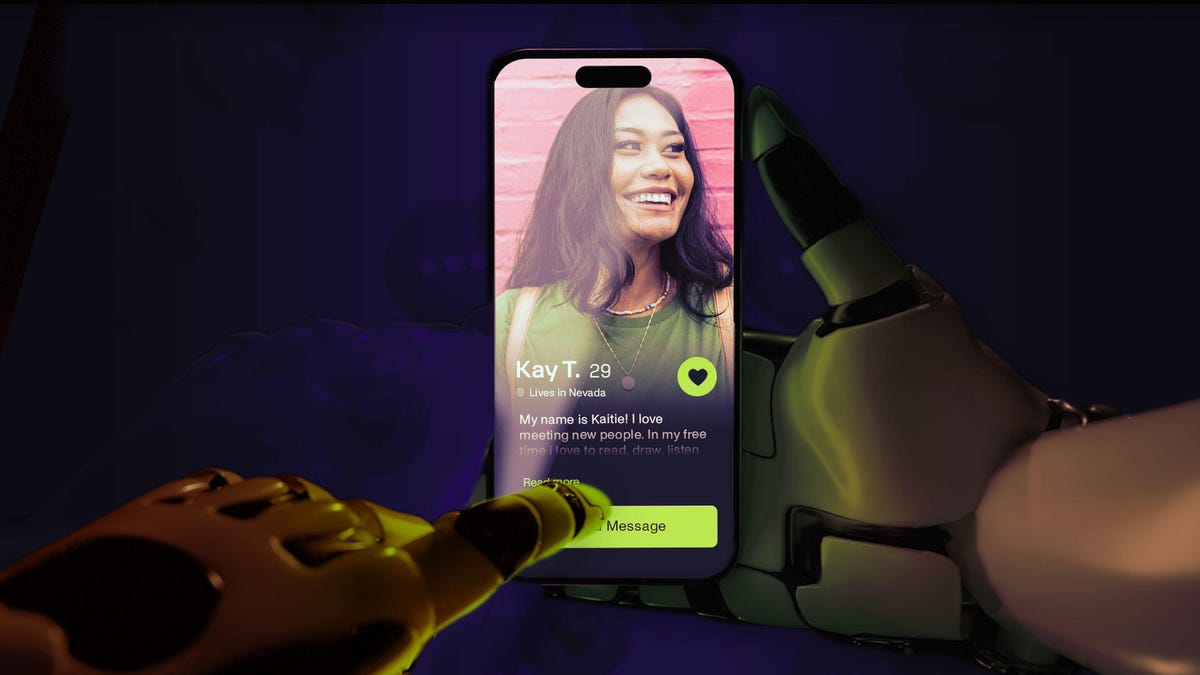Tech
AI Is Here to Save Dating Apps — or Make Them Worse

The Evolution of AI in Dating Apps: Promise, Pitfalls, and the Future of Love
Dating apps have become an integral part of modern romance, shaping how we meet, connect, and fall in love. While these platforms have revolutionized the dating landscape, they’ve also introduced a unique set of challenges, from swipe fatigue to concerns about safety and privacy. Enter artificial intelligence (AI), a technology that has the potential to transform the dating app experience—enhancing features, addressing user frustrations, and raising new questions about trust and ethics. In this article, we explore how AI is reshaping the world of online dating and what it means for those searching for love in the digital age.
AI in Dating Apps: A Turbocharged Matchmaker
Dating apps have long relied on AI, though in more subtle ways. From the algorithms that power swiping models to tools that enhance security, AI has been a quiet but essential companion in the digital dating journey. For years, dating apps like Tinder and Hinge have used foundational AI to create personalized recommendations. These algorithms analyze user behavior—swipes, likes, and profile preferences—to suggest potential matches. For instance, if multiple users swipe right on similar profiles, the app learns to prioritize those kinds of matches for users with similar tastes.
The rise of generative AI, however, is taking this to the next level. Generative AI, the same technology behind tools like ChatGPT, can create text, images, and even audio based on simple prompts. Dating apps are beginning to explore its potential, from improving profile-building tools to offering AI-powered chat assistants. Tinder, for example, recently introduced an AI-powered photo selector tool that scans your camera roll to pick the best pictures for your profile. This kind of innovation aims to make the dating app experience more seamless and enjoyable.
But generative AI isn’t just about improving aesthetics. It’s also being used to tackle some of the most pressing issues in online dating, such as fraud and spam detection. Bumble, for instance, has developed tools to identify and block fake profiles, ensuring a safer environment for users. These advancements are a welcome development in an industry that has long grappled with user burnout, ghosting, and security concerns.
Burnout, Ghosting, and the AI-Driven Solution
The online dating industry is at a crossroads. Despite being worth billions of dollars, user growth has stalled in recent years, and many users report feeling exhausted by the endless swiping, awkward conversations, and ghosting that often come with dating apps. A recent study found that dating app burnout is a pervasive issue, with users feeling drained by the process and skeptical about finding meaningful connections. Some critics even allege that dating apps are designed to keep users swiping indefinitely, rather than fostering real relationships.
AI has the potential to address these pain points. By improving match quality, reducing the noise of irrelevant profiles, and even helping users craft better opening lines, AI could make dating apps more efficient and user-friendly. For example, tools like Rizz—an AI-powered dating assistant—use generative AI to suggest responses to messages, helping users break the ice or keep a conversation going. "It’s challenging to start a conversation," says Roman Khaves, co-founder of Rizz. "Rizz makes it easier to have and start conversations."
However, AI isn’t a silver bullet. While it can enhance the user experience, it also risks exacerbating existing concerns about privacy, transparency, and trust. As dating apps adopt more AI-driven features, they must carefully balance innovation with user well-being.
Privacy Concerns: The Dark Side of AI in Dating Apps
Privacy has always been a sensitive topic in the world of online dating. Users share intimate details about themselves, from their preferences to their personal photos, with the hope of finding a compatible match. But this level of vulnerability comes with risks, including data breaches, scams, and misuse of personal information.
The introduction of AI into dating apps raises these concerns to a new level. Generative AI, in particular, requires vast amounts of data to operate effectively. Dating apps that adopt these tools must grapple with questions about how they collect, store, and use user data. For example, if an app begins scanning users’ direct messages to improve match recommendations, would users consent to this? And what safeguards would be in place to protect that data from misuse?
Unfortunately, many dating apps lack clear policies about their use of AI and data. A recent evaluation by the Privacy Not Included project at Mozilla Foundation found that more than half of the most popular dating apps fail to meet minimum security standards. Many apps also share or sell user data with advertisers, raising concerns about how AI might amplify these practices. "A lot of the companies are using that information not just to help you find love, but to help them make money," says Jen Caltrider, program director of the project.
The lack of transparency is particularly worrying as dating apps begin to explore more advanced AI features. Grindr, for example, has updated its privacy policy to store messaging information on its servers rather than on users’ devices. This change comes as the company explores new ways to use generative AI, though it has yet to reveal specifics. Given Grindr’s history of data misuse, including a lawsuit alleging that